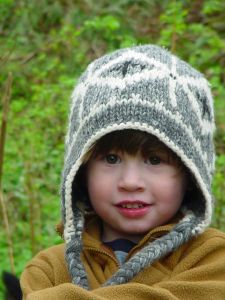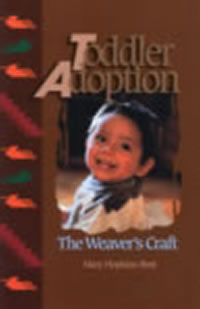 The “toddler” years are a well defined and distinct stage of development however, most of the adoption information parents find is about newborns and older children. The lack of information about adopting a toddler often leads adoptive parents assume that a toddler is not much different from an infant.
The “toddler” years are a well defined and distinct stage of development however, most of the adoption information parents find is about newborns and older children. The lack of information about adopting a toddler often leads adoptive parents assume that a toddler is not much different from an infant.
Some parents feel a toddler has no real conscious memory of birth parents or foster parents and are not affected from neglect or abuse. Adoptive parents may hope toddler adoption means they will skip the demanding baby stage, or a toddler will become an instant playmate for other children in the home.
Parents and professionals embrace the theory that with proper love and good behavior management, an adopted toddler will quickly overcome previous trauma and attach to the family. It is important to understand that while some toddlers do quickly adjust, many parents discover an adopted toddler may display behaviors and feelings that are difficult to cope with even after the child is firmly attached to their new parents. Some of these behaviors include:
- Display of Anger and grief,
- Behaving aggressively,
- Rejection of their adoptive parents,
- Toddlers may be hypersensitive to stress,
- And, toddlers may revert to learned survival tactics.
Adopting a toddler is not the same as adopting a newborn. Parents and professionals need to acknowledge some of the specific preparation techniques, transition strategies, and special parenting approaches that are needed to help toddlers adjust to their new families.
A developmentally on target toddler displays an emerging sense of autonomy and has acquired an array of physical skills. However, many toddlers arrive in their adoptive family with challenging behaviors caused by early neglect, abuse, or multiple disruptions in caregivers. Unlike older children, toddlers are not able to understand the advanced preparation for transition, and therapeutic strategies used with older, more advanced children. Many toddlers keep their adoptive parents confused due to the toddler’s anger, grief, and natural development toward independence.
Parenting a newly adopted toddler and helping them transfer their dependence and trust while supporting their emerging independence is hard for both the toddler and the parents. Transition can be even more devastating when toddlers are abruptly moved from one home to another. Many toddlers conclude they are powerless to prevent caregivers from magically appearing or disappearing, so a toddler may resist attachment with new parents.
During transition, communication skills often suffer setbacks, and may always be affected by changes in a child’s primary language if adopted internationally. Domestically adopted toddlers have to adjust to different communication styles and expectations. Toddlers develop a sense of security with routines, which often change dramatically when they are placed into a home with new parents and new routines. While toddlers may be out of the infant stage, they have not developed communications skills and can’t tell parents what, or how they are feeling. Most toddlers don’t even have the words to express what they are thinking let alone the ability to tell parents their feelings.
Parents who make an informed decision to adopt a toddler are usually ready to respond to their child’s special needs. Parents, who carefully prepare their home for a new toddler work hard to childproof the house, establish a strong support system of family, friends, and other adoptive parents, and preparing siblings.
 Many parents who have adopted a toddler agree one of the single most valuable resources we have found is the book Toddler Adoption The Weavers Craft, by: Mary Hopkins-Best
Many parents who have adopted a toddler agree one of the single most valuable resources we have found is the book Toddler Adoption The Weavers Craft, by: Mary Hopkins-Best
For more information about Transitions:
- Getting Ready For Your Child’s Arrival
- Adoptive Parents WAIT!
- Transition is All About the Baby or Child
- Starting you Child’s LifeBook
- Planning For Transition
- When Travel Is Required
- Transition of Siblings Anna’s Story
- From Orphanage or Institution to Home
- From Foster to Forever in the Some Home
Photo credit:  (no use restrictions)
(no use restrictions)
![]() Special Needs and Adoption-Related Terms:
Special Needs and Adoption-Related Terms:
A | B | C | D | E-F | G-H-I | J-K-L | M | N-O | P | Q-R | S | T-U-V-W-X-Y-Z
For more information about parenting special needs children you might want to visit the Families.com Special Needs Blog and the Mental Health Blog. Or visit my personal website.

